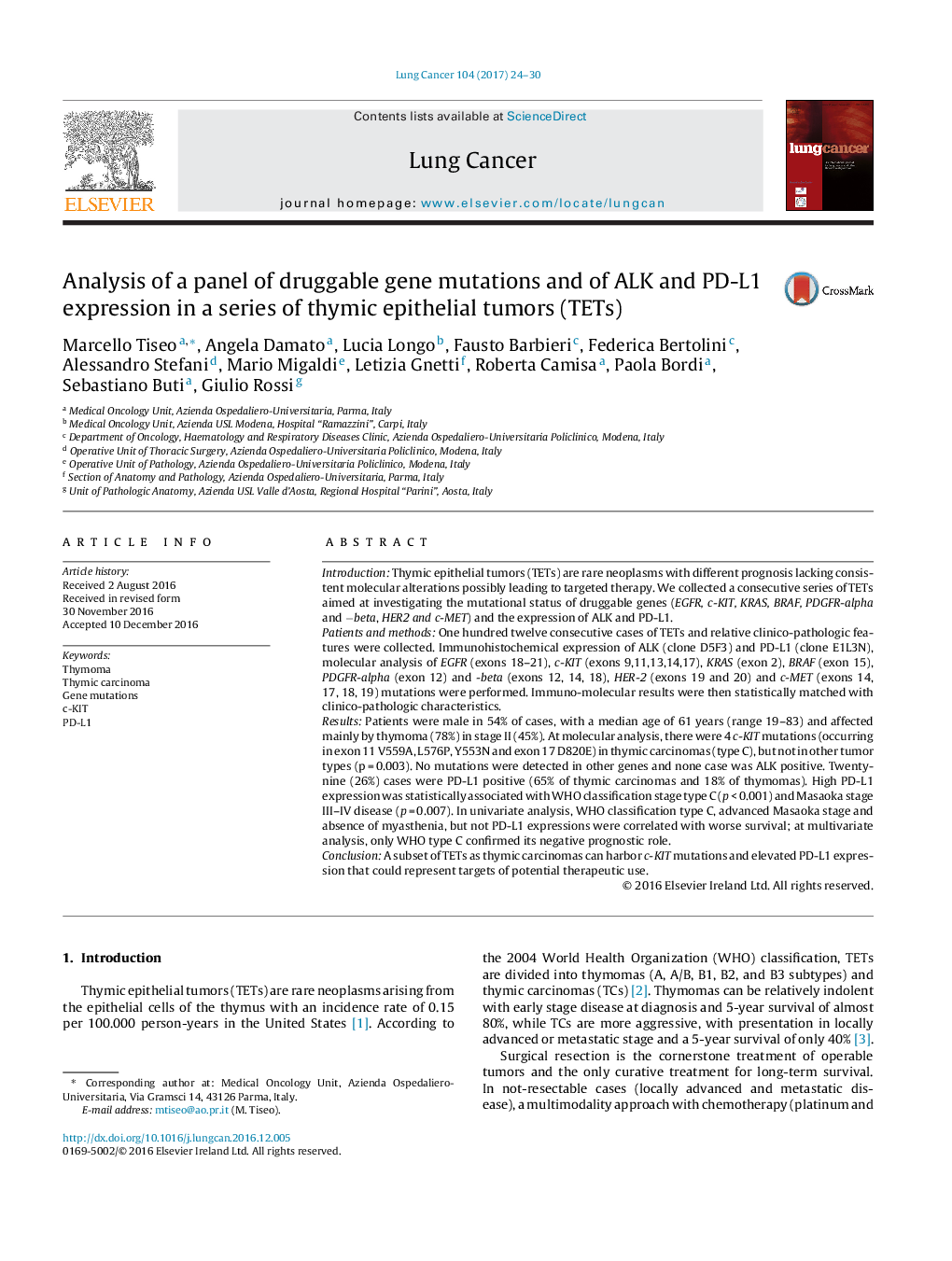| Article ID | Journal | Published Year | Pages | File Type |
|---|---|---|---|---|
| 5528402 | Lung Cancer | 2017 | 7 Pages |
â¢Thymic epithelial tumors (TETs) are rare neoplasms with different prognosis.â¢The identification of new targets an emerging need in TET management.â¢A panel of 7 druggable genes and ALK and PD-L1 expression was evaluated.â¢Thymic carcinoma can harbor c-KIT mutations and elevated PD-L1 expression.â¢c-KIT mutations and PD-L1 could represent targets of potential therapeutic use.
IntroductionThymic epithelial tumors (TETs) are rare neoplasms with different prognosis lacking consistent molecular alterations possibly leading to targeted therapy. We collected a consecutive series of TETs aimed at investigating the mutational status of druggable genes (EGFR, c-KIT, KRAS, BRAF, PDGFR-alpha and âbeta, HER2 and c-MET) and the expression of ALK and PD-L1.Patients and methodsOne hundred twelve consecutive cases of TETs and relative clinico-pathologic features were collected. Immunohistochemical expression of ALK (clone D5F3) and PD-L1 (clone E1L3N), molecular analysis of EGFR (exons 18-21), c-KIT (exons 9,11,13,14,17), KRAS (exon 2), BRAF (exon 15), PDGFR-alpha (exon 12) and -beta (exons 12, 14, 18), HER-2 (exons 19 and 20) and c-MET (exons 14, 17, 18, 19) mutations were performed. Immuno-molecular results were then statistically matched with clinico-pathologic characteristics.ResultsPatients were male in 54% of cases, with a median age of 61 years (range 19-83) and affected mainly by thymoma (78%) in stage II (45%). At molecular analysis, there were 4 c-KIT mutations (occurring in exon 11 V559A, L576P, Y553N and exon 17 D820E) in thymic carcinomas (type C), but not in other tumor types (p = 0.003). No mutations were detected in other genes and none case was ALK positive. Twenty-nine (26%) cases were PD-L1 positive (65% of thymic carcinomas and 18% of thymomas). High PD-L1 expression was statistically associated with WHO classification stage type C (p < 0.001) and Masaoka stage III-IV disease (p = 0.007). In univariate analysis, WHO classification type C, advanced Masaoka stage and absence of myasthenia, but not PD-L1 expressions were correlated with worse survival; at multivariate analysis, only WHO type C confirmed its negative prognostic role.ConclusionA subset of TETs as thymic carcinomas can harbor c-KIT mutations and elevated PD-L1 expression that could represent targets of potential therapeutic use.
